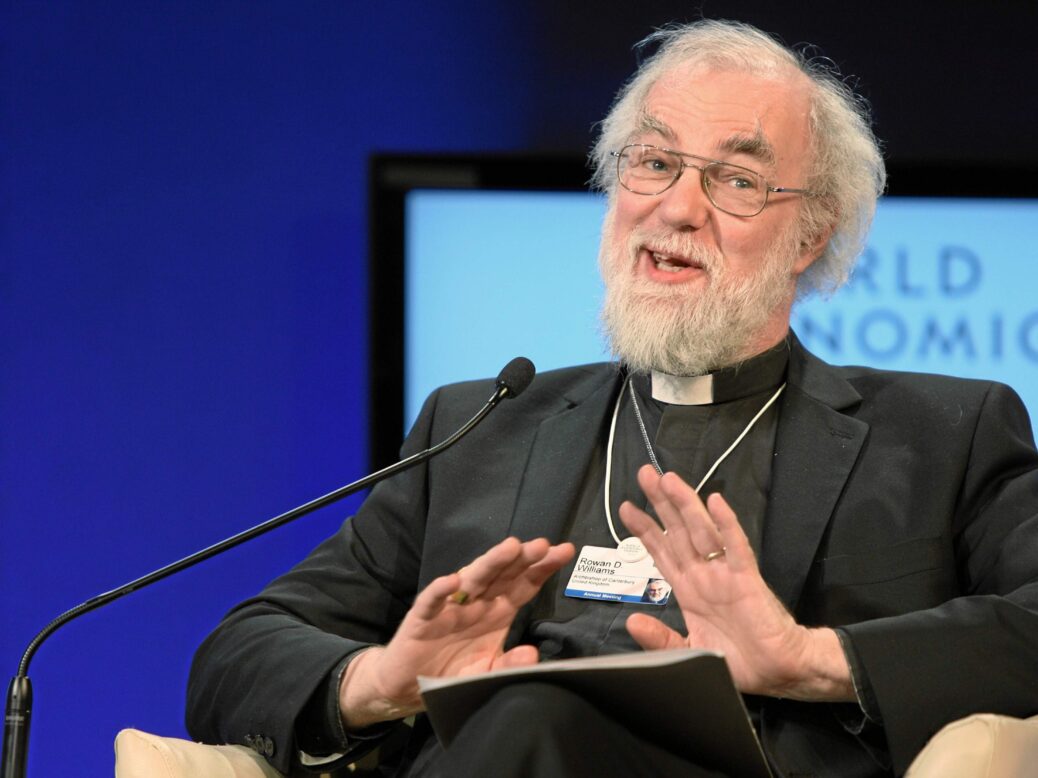
Former Archbishop of Canterbury Rowan Williams muses over Shakespeare, Mugabe and alienation
I struggle a lot with busyness: I sometimes describe the diary as a carnivore. It eats my time. But it’s my fault – I can’t say no. It means you have to work at a number of things. One is addressing guilt: we feel we must always justify our existence by being productive and busy, as if we want to present the worksheet to some cosmic examiner. But we have to ask ourselves: ‘What if my value doesn’t depend upon that?’
The other point is purely practical: you have to make sure that in every day there’s time for meditation: to pray or to read. The deepest secularism in our society is not Richard Dawkinsism – it’s the way our lives are organised to think: ‘Unless I’m busy, I’m dead.’ Unfortunately the rhetoric around our education system buys into that.
Our problem is a lot of people think religion is first and foremost a set of clichés rather than a practice. I grew up in a religious household, and never felt I needed to walk away. That was partly because the Christian environment I belonged to as a teenager was one in which we were expected to be intelligent. The vicar would lend books and make time for discussion. There was always the sense that you were exploring something you could confidently settle into.
Something [the novelist] Salley Vickers once said to me: ‘If belief in God – as the New Atheists say – is like believing in the tooth fairy, then you have to explain why the belief in the tooth fairy has not generated the Divine Comedy or the St Matthew’s Passion.’ It’s not as if up until 1750, nearly everyone was very stupid. Dorothy Sayers used to say about the doctrinal system of Christianity: ‘This may be wrong, it may be mad – but it’s never dull.’
Bard Love
I do a Shakespeare retreat each year; we take a play, watch a film and talk through the human dimension of the play. It was Macbeth this time. We watched the Ian McKellen/Judi Dench 1976 performance, which for my money is the best ever. We engage with the characters in Macbeth because for all their efforts to make themselves inhuman, they never lose their humanity. When Macbeth finally confronts Macduff, he acknowledges what he’s done: ‘Of all men else I have avoided thee.’ That struck me with particular force this time around.
Abbey days
I’ve been patron of Abbeyfield [a charity providing housing and residential care for older people] for a few years now. What attracted me about it is that it’s an environment where people keep their agency. You’re not shelved; you’re encouraged to make decisions. That’s why I’ve been enthusiastic about it.
Democratic paralysis
Paralysis is the word for our current political predicament; it works on many levels. There’s the sheer paralysis of our democratic institutions, which is deeply worrying. There’s also the paralysis behind what you might call ‘frozen attitudes’: the increasing assumption that my position and your position are essentially in competition. Someone wins, someone loses. If you win, that’s the end for me; if I win, that’s the end for you. That dimension of democracy which is about going on listening to the defeated minority because, like it or not, they have something to say which you’re going to need to hear at some point – that’s been depleted.
What do we need to break that paralysis? We need to foster and focus on all the institutions of local democracy where people learn how to be democrats in the communities they’re in. I’d also say: ‘Come back, Clement Attlee!’ Perhaps the most boring prime minister of the 20th century, but the most effective.
We haven’t really registered how deeply alienated some people felt. But the answer is not to find some theatrical way of declaring your frustration, but to ask: what are the institutions, the habits and practices that reintroduce people to a sense of being in charge of their lives?
Meeting mugabe
Mugabe wasn’t the easiest encounter: I’d gone with a dossier of human rights abuses to present him, which he wasn’t very impressed with. When I met him, I was very conscious that a lot of people were praying, and willing me to go through it, and that helped me be a little less anxious. The chances of my actually being shot or imprisoned were slight. But getting it wrong in such a way as to endanger fellow Christians in the country, or to bolster his reputation – those were my worries.
‘Too much learning hath made thee mad,’ as Festus says to St Paul. It’s important to read books, but the question is: ‘What do we read books for?’ Reading – and prayer – is about finding alignment with love and intelligence: those are the words I keep coming back to.






